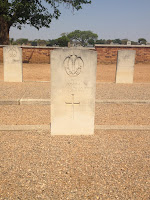Too Many Walls, Not Enough Bridges
Whenever my daughter wants to imitate me, she will assume a wistful tone, look into the distance and say something along the lines of: ‘When I was a child, none of the gardens had walls. We just roamed free, wandering across neighbours’ lawns, picking flowers and swinging from the trees. Nobody locked their doors either, so we just walked through their houses as well, helping ourselves to whatever we wanted.’
Ok, I get the point. It is easy to look back at the past through
rose-drenched glasses and imagine a fairytale world in which there was no crime
and everyone loved each other. It’s par
for the course when you get to a certain age and even more common in older
Zimbabweans who view the past as a virtual Eden from which they have been
ejected.
I will try and be as objective as possible. We were never like some parts of the world, like America, where one lawn seems to run into another and where boundaries are marked by driveways. When I was growing up in the late 70s and 80s, some houses had fences and some had hedges, and, of course, some did have walls. They weren’t really there to keep people out, though, they were more a way of demarcating one’s property. They certainly weren’t six feet high with barbed wire round the top.
If I was to give advice to any school-leaver as
to what career to go into, I think I would say wall building. There must be so
much money in it. Just about everyone in
Zimbabwe is either building a wall or replacing a low wall with some awful,
gigantic monstrosity. Usually, they are huge,
grey and prison-like with either broken bottles or barbed or electric wire on
the top and they often, perhaps bizarrely, include a guard house at the front
gate. I say bizarrely because, really,
how many people need a guard house? How
many strangers are likely to come in and out of your property that it needs monitoring,
and why should you be asking your friends to sign in and out?
Now, I know what you are saying. There’s crime
and people have to protect themselves. Yet, in my mind, things such as guard
houses and huge walls only suggest one thing: money. Is there any better way of telling everyone
you have lots of it? But it is not just
money that some are hiding. Many people
are into some very dodgy ventures, from gold dealing to drug pedalling, and I
am afraid that it is often these people who literally set the height of the
wall for everyone else in the neighbourhood.
It’s not just the environmental damage that I
object to, although that is one of my main concerns. It is also the effect that this mad wall
building has on the community. No one
knows their neighbours; in fact, they can’t even see their
neighbours. Instead of working together
as a neighbourhood and watching out for each other, everyone suspects
the other. The very people who should be
able to tell that something might be wrong next door or note any strange
comings and goings are viewed as potential criminals.
This sense of being distanced from the
community you live in is further enhanced by the fact that those who live behind
six feet high walls are most likely to watch DSTV or the equivalent rather than
local tv (does anyone watch local tv?).
The news they watch will be foreign and even the weather report will be
for somewhere else. They will connect to
the Internet but not the person who lives next door. This disassociation from a wider community
has serious repercussions. It is why you will find that whenever there is any
political unrest, the richer suburbs will be very quiet, watching proceedings
in their own country as depicted on Sky News or BBC.
In all likelihood, these houses behind the
walls will have a borehole and a solar system and a panic button connecting
them to some rapid response security company should it all go wrong and someone
manage to pole vault over the wall or dig a tunnel underneath it.
In a country where there is no back up unemployment system should you lose your job, no pension scheme should you want to retire, and where basic services such as lights and water regularly don’t work, it is increasingly necessary to be totally self-sufficient. It’s understandable, but the drawback is the focus on the ‘I’, the need to look after myself whatever else may be going on. This has led to the building of many an urban castle – and if they could have moats, I think many would.
It is not just the rich who hide behind walls,
however. Sometimes the house behind the six-foot blocks of concrete is small or
rundown and practically falling to pieces.
One can only wonder at the need for such stringent security. More often than not, the wall is the first
thing to be built on newly acquired plots of land, and the house the last.
In his famous poem about walls, Robert frost
wrote:
‘Before
I built a wall I’d ask to know
What
I was walling in or walling out,
And
to whom I was like to give offence.
Something
there is that doesn’t love a wall,
That wants it down.’
Yes, there is a need to ask what we are walling
out. Is it just potential criminals? Or
is this whole wall-building frenzy not just symbolic of a greater need to keep
the chaos of Zimbabwe out, to live here, but also live apart from it? Good
fences do make good neighbours, but it’s walls, especially those six-feet high,
that keep us apart from each other.







Comments
Post a Comment